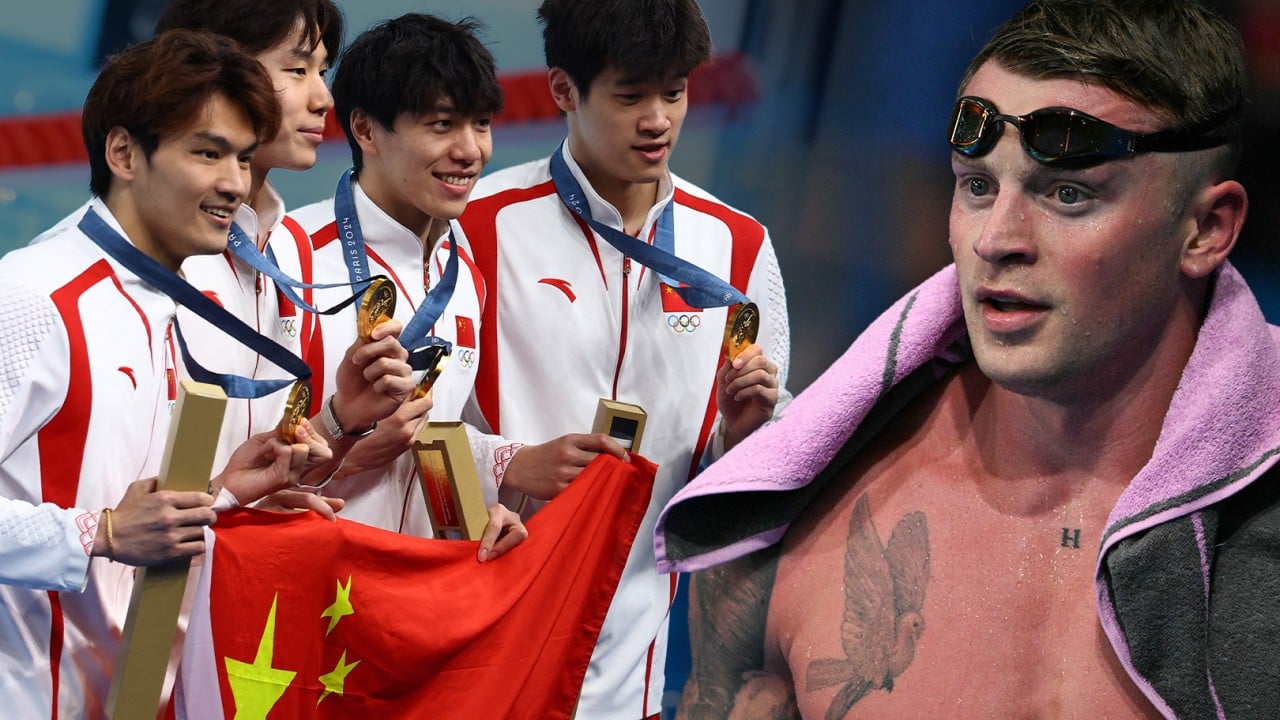If the Olympics are a proxy for geopolitics, they also typically are replete with paeans to the global spirit of sportsmanship and mutual respect. They are supposed to bring out the best in everyone – except, apparently, when the athletes in question are Chinese.
In some Western circles at least, the 2024 Paris Olympics have been open season for the vilification and disrespect of Chinese athletes. Athletes, coaches and fans seem to be taking cues from political leaders intent on bashing China. Through it all, China simply keeps on winning medals.
What stands out in Paris is the blatant anti-China discrimination within the athletic community itself. After Chinese swimmer Pan Zhanle won gold in the 100-metre freestyle final and clipped his world record by a seemingly impossible 0.4 seconds, Brett Hawke, a former Australian Olympic swimmer who is now a coach based in the US, questioned the result. “Listen,” Hawke said in an Instagram video. “I’m just going to be honest. I am angry at that swim, I’m angry for a number of reasons.” The strong implication was that Pan’s feat couldn’t have occurred without doping.
The aspersions stemmed from a report that 23 Chinese swimmers had tested positive for a banned substance just before the 2020 Tokyo Olympics. Notably, Pan was not among those swimmers. Moreover, Pan has said he was tested for performance-enhancing drugs before and after his record swim.

Nevertheless, after Pan swam an extremely fast final leg in the men’s 4×100-metre medley relay to take China to gold, a commentator for a US broadcaster saw fit to mention that two of the swimmers on the team had tested positive for a banned substance three years earlier, although he also clarified that Pan had not tested positive.
Meanwhile, a video clip that surfaced online shows a Chinese swimming coach extending a congratulatory hand to French phenom Leon Marchand. The swimmer then appears to snub the coach and walk right by him. Marchand, who won four gold medals at the games, reportedly made up with the Chinese swimming coach in a later exchange.
The anti-China sentiment has extended to the tennis court as well. Here is how US tennis player Emma Navarro summarised what she said to Chinese tennis star Zheng Qinwen after losing to Zheng in their Olympic third round match: “I just told her I didn’t respect her as a competitor. I think she goes about things in a pretty cutthroat way.” Zheng went on to win China’s first gold medal in singles tennis.

These occurrences echo decades-old patterns, as I know from personal experience. As an elite (although hardly Olympics-calibre) high school basketball player in 1980s, I was an oddity as an Asian-American player. Our “place” was assumed to be in chemistry labs or calculus classes. Competitors and spectators shouted, “You people should be playing ping pong.” Even my coach nicknamed me “Chinaman”.
The Trump administration made experiences like mine a part of everyday political discourse. Now, anti-China rhetoric stands as something that Democrats and Republicans can agree on.
The former president referred to the Covid-19 virus as “kung flu” and argued that China has ripped off the US. I don’t know where Hawke and Navarro stand on public health and trade policy, but I do know that their attitude toward Chinese athletes is downright Trumpian.

The West extols a narrative that says China should not be allowed to disrupt the so-called rules-based international order. Apparently, that proverbial order extends to the Olympic Games as well.
Before China’s hi-tech industrial revolution, Beijing served the West’s interests by providing plenty of cheap components, low-tech products and natural resources. During that period, not many seemed concerned that China was the gold medallist when it came to coal consumption and greenhouse gas emissions.
Now that China is either closing the gap or surpassing the West in areas such as solar power, chip manufacturing and design or rare metals extraction, the tone is different. US President Joe Biden hopes to contain and ostracise China through sanctions and threats to ban TikTok.
At the Olympics, so long as China won medals in traditionally Asian-centric or obscure competitions like table tennis, badminton, diving and shooting, the West didn’t feel threatened. Attitudes seemed to change when China began making advances in events like swimming and tennis.
Last week, a bipartisan group in US Congress threatened to hold back funds to the World Anti-Doping Agency for not properly disclosing the Chinese swimmers’ positive tests before the Tokyo Olympics. Expect a host of like-minded efforts over the coming months to complement other anti-China legislation currently in Congress.
Do these inflammatory tirades make a difference? They certainly don’t seem to have affected China’s results in Paris, where it trails only the US in the medal count.
A similar dynamic has played out in the economic realm. Take the case of Huawei. The corporate behemoth that has been heavily sanctioned and even blacklisted by the US has seen its mobile operating system become mainland China’s second-largest, surpassing Apple.
The ordeal of China’s Olympians is a microcosm of the nation’s resilience. Chinese athletes will probably remain a target for haters. But those same athletes are even more likely to ascend the podium in events once dominated by the West.
“The competition is over,” Pan Zhanle said after his final swim in Paris. “We are the champions.” He suggested that if anyone should be unsatisfied, it wasn’t China. Pan, like China as a whole, has earned the right to do a little trash-talking.
Stanley Chao has worked in China and the Asia-Pacific region for more than two decades and is the author of “Selling to China: A Guide for Small and Medium-Sized Businesses”



